Why You Need to Go to a Rocket Launch This Summer
It turns out you can just go to a rocket launch — and, after attending my first, I can say with certainty that everyone should watch a rocket launch at least once in their life.
On Monday (May 21), Orbital ATK's Antares rocket launched a Cygnus spacecraft full of supplies and scientific equipment to the International Space Station from the Mid-Atlantic Regional Spaceport at NASA's Wallops Flight Facility in Virginia. This mission, OA-9, which followed the November launch of OA-8, sent up clothing, food, sextants, E. Coli and an instrument that will create the coldest human-made spot in the universe.
I was pretty excited about the mission before I even saw Antares launch. But now I know: Actually seeing a rocket launch is truly something else. [Blastoff! How to See a Rocket Launch in Person This Summer]
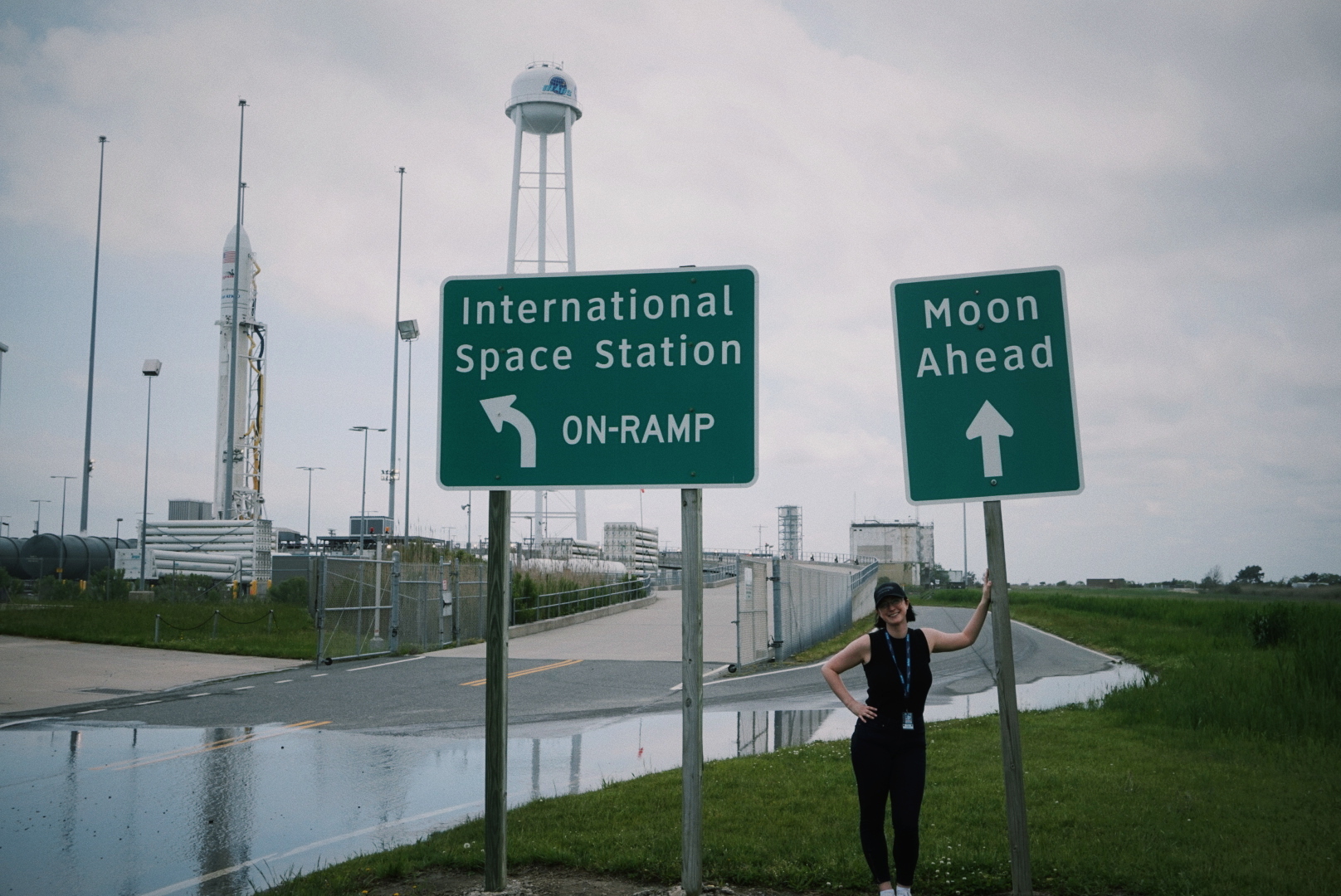
If traveling to a launch isn't possible, however, you can always watch rocket launches live online through webcasts by NASA, SpaceX and other launch providers (and on Space.com, of course).
In my case, I watched from the press site with other media professionals. And every single person in attendance for Antares was ecstatic to be there, regardless of the number of launches they'd witnessed. Everyone I met — photographers, space science enthusiasts, journalists, mathematicians, administrators, social media mavens and even the scientists sending their years of work into space — was equally thrilled.The first thing that struck me about attending a launch was the group of people who watched the event with me. Driving to the press site, I worried that, having never been to such an event before, I would stick out or be left behind by the time-hardened pros who have been watching launches since the birth of human spaceflight. But, boy, was I wrong.
Anyone can attend a rocket launch. Public areas near the launch site and official viewing areas will be full of experienced launch viewers and excited newcomers alike. Some places require you to buy tickets in advance, and others just require viewers to show up early and be ready to wait. (You can read more about specific launch viewing opportunities in Space.com's countdown.)
It was soon clear to me that whether you're watching a launch professionally or you just want to have a great time, the people you meet will be just as excited, and the positive energy only compounds when you find yourself in a crowd of space lovers about to watch a rocket ignite. So, don't worry: If you love space, you will find no shortage of like-minded people at a launch.
Get the Space.com Newsletter
Breaking space news, the latest updates on rocket launches, skywatching events and more!
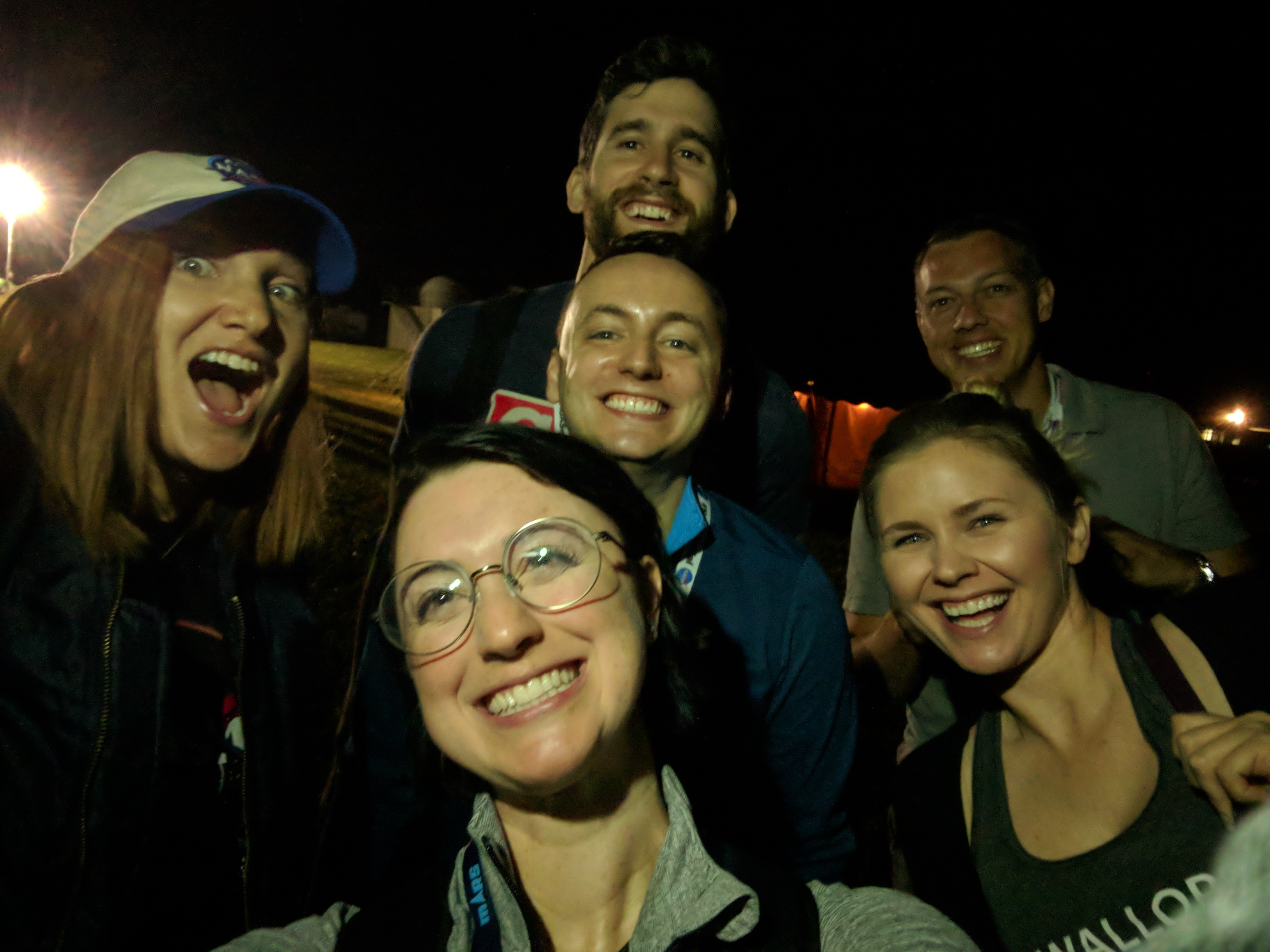
Those interpersonal interactions colored my experience and shaped it for the better. I thought that my time spent writing about space and the countless launch videos I'd watched had adequately prepared me for the launch. Again, I was wrong. Nothing I had before experienced could have prepared me to witness an object leave the Earth for outer space.
Day of the Launch
The launch began wildly early in the morning. This is not the case for all launches, but for this particular Antares liftoff, I arrived at around 3 a.m. EDT. Having made the mistake of wearing canvas sneakers, I waded through damp, tall grasses to the viewing area with a tall can of bug spray in my hand — be sure to dress appropriately, ticks are not a joke.
As my eyes adjusted to the darkness around me, I saw Antares across a body of water, standing vertically on the launch pad, bathed in stage lights and ready for the show. And while we stood a safe distance from the rocket — pretty far, when you look at the pictures — it struck me just how visible the spacecraft was and how close it felt.
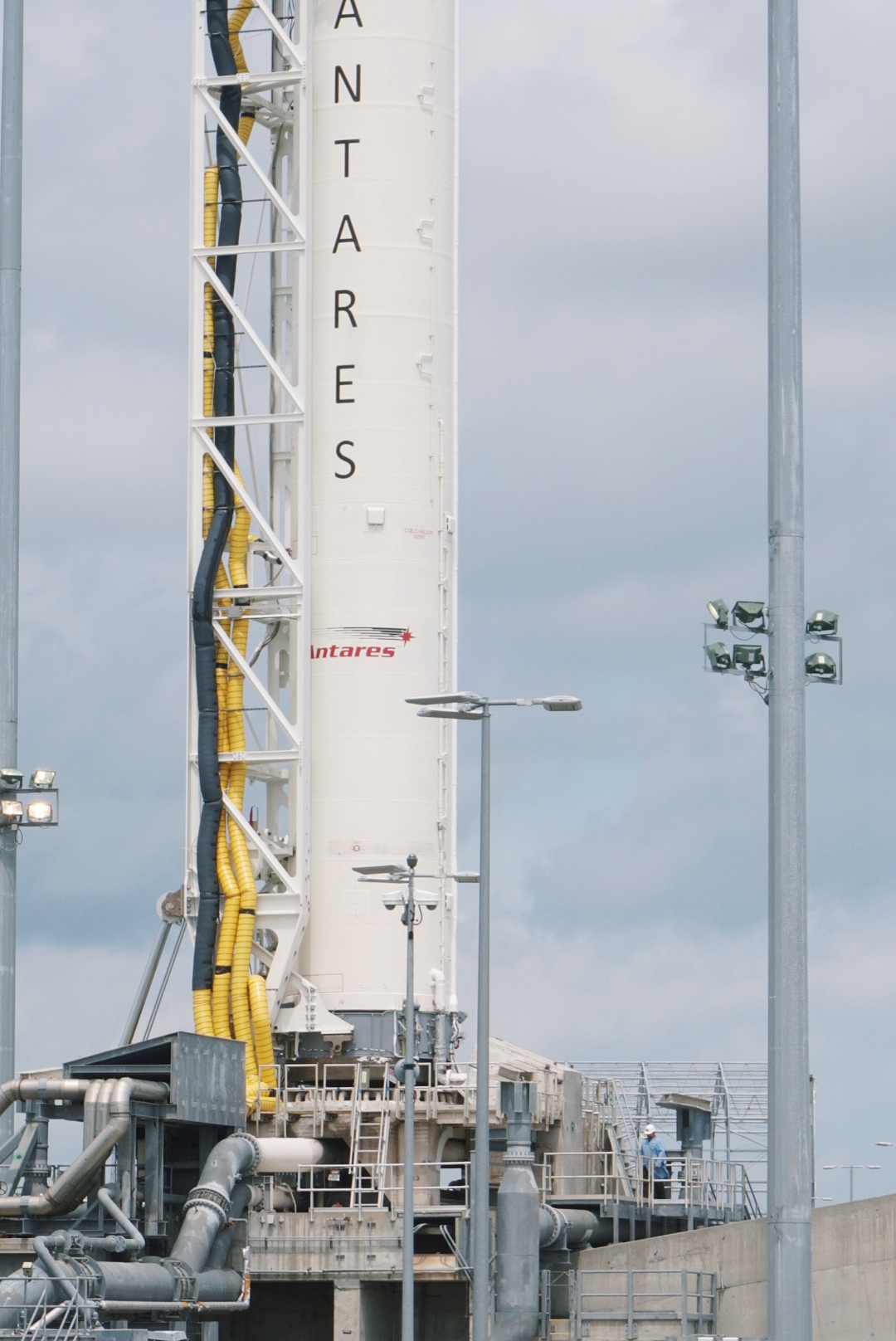
The torrential downpour that had dampened the spirits of the earlier morning hours had finally died down, and doubts about whether the launch would again be delayed faded. Concerns about the weather and my need for coffee soon gave way to the realization of where I was and what was about to happen. The next hour or so brimmed with anxious excitement as the launch window approached.
Behind the gaggle of giddy attendees, voices that were unmistakably from mission control boomed over loudspeakers, stating that liftoff would be pushed further into the launch window. The launch time was now set for 4:44 a.m. EDT.
Looking at my watch, I couldn't believe it was so close. I thought my anticipation had peaked, but it continued to grow as the minutes ticked on. At 4:43 a.m. EDT, the countdown began and my eyes widened. Flashbacks to Apollo documentaries left me feeling emotional as 10 went down to 5, then 4, 3, 2, and 1.
Antares ignited, and the colorful flames beneath the rocket spewed out into billowing clouds. Moments later, the sound of the rocket arrived (as light travels faster than sound): a crackling, vibrating roar that you could feel as much as you could hear. Soon, Antares was in the air, shooting straight up into the sky. Briefly, the entire sky lit up, and it looked almost like daytime.
After Antares' first stage, the second stage appeared, masked by clouds, beaming like a large, soft star in the sky.
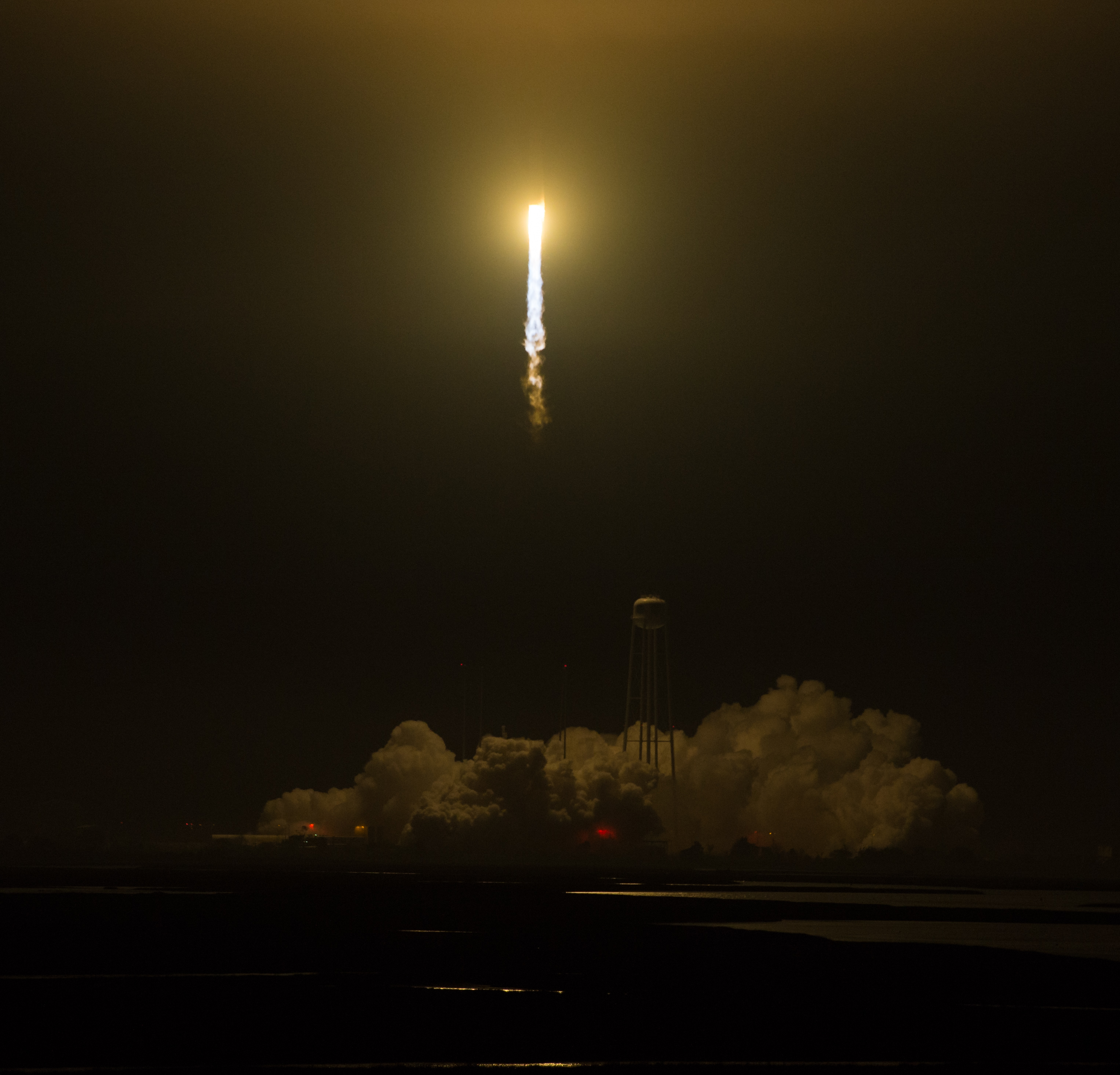
For what felt like an hour, but was less than a few minutes, the craft grew smaller and smaller, and, all of a sudden, it was gone. The rocket that had once stood so tall on the pad had completed its task, and Cygnus was well on its way to rendezvous with the space station. The moment hung thick in the air as the weight of the event fell upon the crowd. It was over.
Looking around, I saw that I wasn't alone in my reaction, as a fair few of us wiped away solitary tears and collected ourselves. Mission Control piped in over the speakers, cheering now that the job was complete. Another successful launch.
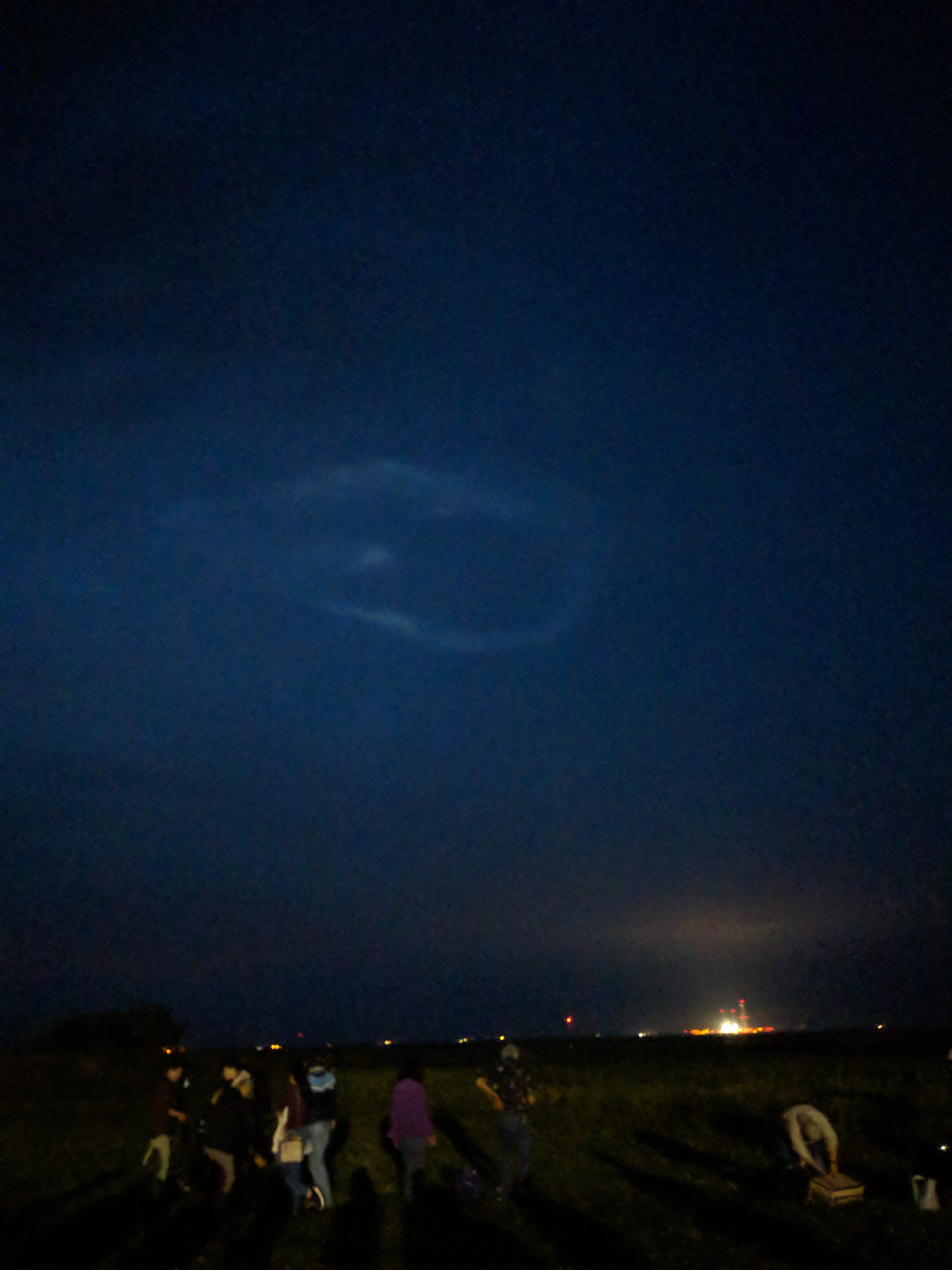
What to Do at a Launch
At a post-launch news conference, I spoke with industry professionals who have seen their fair share of launches. They shared some helpful tips and comments for people looking to attend a rocket launch.
Kirk Shireman, NASA's space station program manager at the Johnson Space Center in Houston, recommended simply that you "enjoy the experience." He said, "Don't try to get your camera out or your iPhone," adding, "Just experience it. If you have to, take a quick selfie."
Shireman is right. Your phone, or even your camera, will never be able to capture the experience or the launch. By putting them away, you allow yourself to really experience the moment.
Kurt Eberly, Orbital ATK Antares deputy program manager, added that "a lot of people have an emotional response when they see a rocket launch." He continued, saying, "I think it's something that it's great to experience, and I think you should have multiple days on your hotel reservation." While this elicited laughs, because of Antares' delay, Eberly has a good point, as launches are often delayed and rescheduled.
Frank DeMauro, vice president and general manager of Orbital ATK's Advanced Programs Division, added that a launch is "an extremely special event. They don't happen that often, and certainly on this program, we launch a couple times a year." He continued, saying: "If you ever have a chance to go, my suggestion would be do it — go for it."

So, to those of you considering attending a launch, follow the expert's advice and go for it. Tackling the logistics of traveling to one of the world's few spaceport locations will be well worth it when you are bathed in the glowing light and Earth-shaking vibrations of some of humankind's greatest accomplishments. So, mark your calendars, plan a trip, and prepare for an unforgettable experience.
Email Chelsea Gohd at cgohd@space.com or follow her @chelsea_gohd. Follow us @Spacedotcom, Facebook and Google+. Original article on Space.com.
Join our Space Forums to keep talking space on the latest missions, night sky and more! And if you have a news tip, correction or comment, let us know at: community@space.com.

Chelsea “Foxanne” Gohd joined Space.com in 2018 and is now a Senior Writer, writing about everything from climate change to planetary science and human spaceflight in both articles and on-camera in videos. With a degree in Public Health and biological sciences, Chelsea has written and worked for institutions including the American Museum of Natural History, Scientific American, Discover Magazine Blog, Astronomy Magazine and Live Science. When not writing, editing or filming something space-y, Chelsea "Foxanne" Gohd is writing music and performing as Foxanne, even launching a song to space in 2021 with Inspiration4. You can follow her on Twitter @chelsea_gohd and @foxannemusic.









